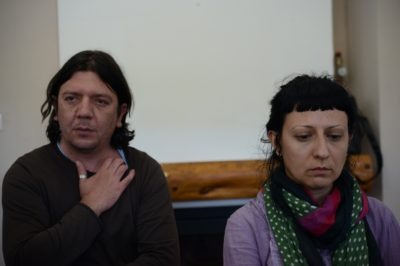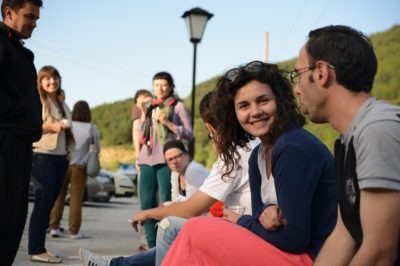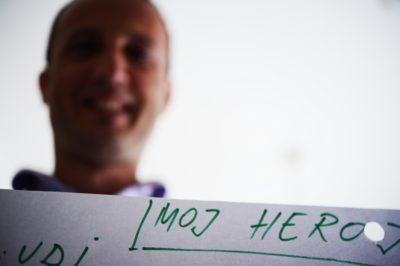“It irritates me when war is treated like a natural disaster”
(quote, training participant)
Report from Basic Training in Peacebuilding, Mavrovo, Macedonia, 28 June – 8 July 2013
Since last year’s report from the basic training held in Mavrovo ended with a statement from one of our hosts: “Mavrovo is a place where problems solve themselves,” it is only fitting to start this year’s report from the same place, because this claim has been proven in practice yet again.

Although one of our greatest aspirations has been to have more people from Kosovo applying to these trainings, and the choice of location was a way to facilitate travelling for people from this region, we were unable to achieve our goal. We only received one application from Kosovo, while most came from Serbia (47), followed by Bosnia and Herzegovina (38), Macedonia (17), Croatia (14), Montenegro (9). One, presumingly misguided application arrived from Albania. Out of a total of 127 applications, there was an increase in applications from persons under 21. Even though 21 is the minim age for participation at the training, this information may be useful to organisations working on youth programmes, because there is evidently interest within this age group for peace building in the region.
Since the choice of location for the training is very important for us, we wanted to familiarise the participants from the whole region with the Macedonian context, and also to encourage activists in Macedonia in their work dealing with conflicts in this area. Hence, another plus for Mavrovo and Hotel Srna that provided us with very adequate working conditions.

The working plan we had prepared before the training was significantly changed at the training itself after insight into the needs and capacities of the group. Ultimately, both the team of trainers and the participants came out satisfied. Our initial ambition was to work on peace building in more detail, but at the training we decided to spend more time on workshops for dealing with the past and reconciliation, and on enabling the participants to recognise social injustices in their societies. As (almost) always, the workshop on gender and sex elicited the most heated discussions. In seems there is still a pressing need in this region to sensitise people for different types of human rights and equality in society, but also in the family.
One of our basic aims is working on conflict resolution, and this time we were very lucky, because the participants themselves recognised and in their free time worked creatively to resolve existing conflicts within the group in a fun way. The training team is therefore particularly grateful that they did not need to spend time on this during the working hours. We are encouraged in terms of further engagement of training participants, because we felt the potential for further reproduction of the knowledge and skills gained at the training. We are particularly glad that two war veterans participated in the peace building training, since CNA as an organisation recognises and has been supporting peace building activities by war veterans.

Although at the beginning it seemed that the team of five might be too big, we worked efficiently and with focus, and we are pleased that the CNA team was once again joined by our colleague Boro Kitanoski from “Peaceful Action” Prilep. He is always a pleasure to work with and socialise with, and his contribution to peace building in the regain is especially significant given his regular activities in world peace movements.
I will conclude this report with a statement heard at one of the workshops that, in a way, became the motto for the whole training: “It irritates me when war is treated like a natural disaster.” So, when we stop treating war like something that happened to us, something out of our control and influence, only then can we begin to build peace. I am positive that the training participants have already gone far in peace building in their areas.
Katarina Milićević